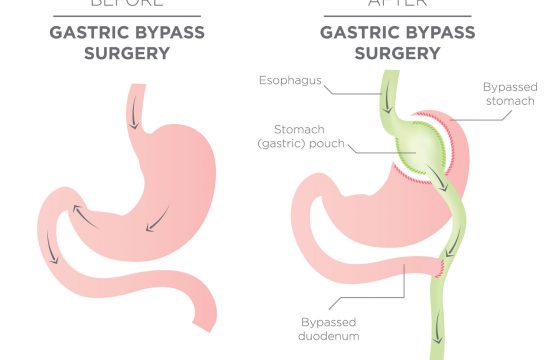Weight Loss Surgery Insurance Appeal Guide
There are several reasons why your weight loss surgery claim may be denied. These include:
- Incorrect/Missing information – If your health insurance company does not have the correct information or it has insufficient information, it may require more information from you to approve your claim.
- Benefit not covered – You need to ensure that the treatment is covered in your plan. If you or your employer has purchased a plan that does not cover a specific treatment, your health insurance company will deny your claim.
- Pre-existing condition – If you have a pre-existing condition that you seek to have covered in your plan, your health insurance company may reject your claim if they find that it will hurt their bottom-line by paying for your treatment if you have not made sufficient premiums to cover the cost.
- Treatment is not medically necessary – Typically, health insurance companies do not cover treatments that are not for the sole purpose of evaluating, diagnosing or treating an illness, disease, injury or symptoms. Treatments must be medically necessary and be in line with accepted medical standards and clinical practice and be appropriate and effective.
- Experimental Treatments – Health insurance companies tend to not cover experimental treatments as they are not yet proven and determined to be best practice treatments.
The Appeals Process
This is the overall appeals process to follow when your claim is rejected by your health insurance company.
1. Get the reason in writing for the rejection from your insurance company
A health insurance company typically communicates all its decisions whether approval or denial in writing. The insurance company’s denial letter should include:
- The name, credentials and title of the person who made the decision.
- The rationale the insurance company used to make the decision.
- The medical review criteria or instructions used for reaching the decision.
- The process for appealing the decision.
- Instructions on how to file an independent external review should your appeal be denied.
- Contact information for obtaining any additional assistance.
Should your denial letter be missing some of this information, then get in touch with your insurance company and get the details of the person who can get this information for you and request for the information in writing either by letter or email.
2. Review and follow the process guidelines
Every insurance company has their own guidelines and processes that may vary from one company to another. It is therefore essential to review and understand your insurance company’s guidelines for your policy and follow them to the letter to maximize your chances of success.
3. Seek help from HR or your doctor’s office
Most doctors’ offices have an insurance coordinator who is dedicated to helping patients with insurance-related issues and it is highly probable that they have already helped other patients in similar situations as you.
If an insurance coordinator is not as helpful, you can also reach out to a doctor who is willing to reach out to the insurance company and speak directly to a decision maker within the insurance company such as the company’s medical director.
You can also reach out to your Human Resource Department to seek assistance as HR are most likely to work with a consultant or broker who carries weight with your insurance company and may push for a resolution a lot more quicker than you can on your own.
4. Write an effective health insurance appeals letter
It is always best to seek guidance before you write the appeals letter so as to ensure that is complete and effective to increase your chances of success.
Your health insurance appeal letter should contain the following essential elements:
- Your full name.
- Your policy and treatment information which is usually sent prior by your insurance company and is found on the Explanation of benefits which includes:
- Policy number
- Treatment description
- Treatment dates
- Total charges from your doctors
- Indicate the reasons why your health insurance company denied your claim. Refer to the denial letter.
- Indicate your intent to appeal the decision.
- Include the specific records the insurance company used to review and deny your treatment.
- Include the specific documents to approve your treatment.
- Attach copies of insurance company medical opinions regarding denial.
- A request of re-review your claim if you had provided additional information in response to a denial letter.
- Your contact information.
Health Insurance Appeal Letter
The following is a health insurance template letter to help you get started.
[Date]
[Your name]
[Your address]
[Your city, state, ZIP]
[Your phone number]
Attn: [Claims Director name]
[Claims Director title]
[Name of insurance company]
[Insurance company address]
[City, state, ZIP]
Re: Patient: [patient’s full name]
Policy Number: [policy number]
Treatment dates: [list all individual dates and date ranges of treatment]
Billed Amount: [total amount billed by your doctor(s)]
Dear [insert name of Claims Director if possible],
On [date of claim denial letter], I received a claim denial for the above referenced claim(s) and was given the following reason(s):
-[list all reasons given to you in writing in the denial letter]
I am appealing this denial on the following grounds:
-[counter (provide the opposing position(s) for the denial(s) (i.e. due to the additional information I provided, treatment is medically necessary, treatment is not experimental, etc.]
Please provide the following information related to your denial:
- Specific records reviewed
- Specific records required to approve this treatment
- Medical opinions justifying the denial
Please reconsider this denial based on the grounds listed above. If you require more information from me, you can reach me in writing via the address above or by email at [your email address].
You can also reach me at one of the following phone numbers:
Daytime [insert hours]: [your daytime phone number]
Evening [insert hours]: [your evening phone number]
Thank you for your time and assistance.
Sincerely,
[patient’s signature]
[patient’s typed name]
Follow up with your insurance company until you get a response in writing to your appeal.











